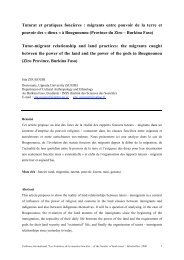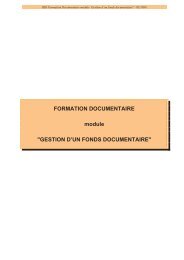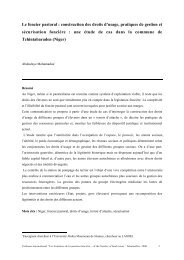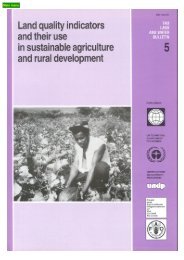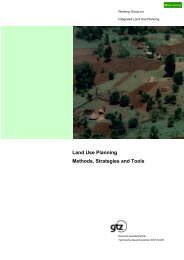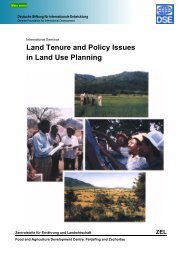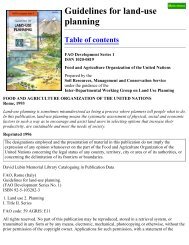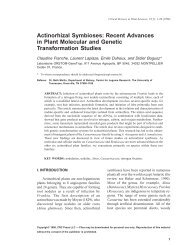Coupe de bois et revendications sociales au Mali - Ird
Coupe de bois et revendications sociales au Mali - Ird
Coupe de bois et revendications sociales au Mali - Ird
Create successful ePaper yourself
Turn your PDF publications into a flip-book with our unique Google optimized e-Paper software.
Abstract<br />
In <strong>Mali</strong>, particularly in the outskirts of Bamako, several mo<strong>de</strong>s of access to rural lands -and the natural<br />
resources they bear- have been progressively superimposed. First, the customary land-tenure system<br />
still prevails at the village level, in particular with regard to arable lands, even if saturation may be<br />
observed in some zones. Second, the municipalities (communes), which result from a recent<br />
<strong>de</strong>centralization process and may be composed of 10-30 villages, have also emerged as an important<br />
actor. They have tried to become a broker b<strong>et</strong>ween the state and local people in matters of natural<br />
resources management, but they still lack an officially <strong>de</strong>volved communal property. Third, urban<br />
actors may also negotiate title <strong>de</strong>eds with customary <strong>au</strong>thorities in outlying villages. Finally,<br />
paralleling the <strong>de</strong>centralization process, a transfer of responsibilities in woody resource management<br />
has, from 1998 onwards, led to agreements b<strong>et</strong>ween the forest administration and village associations<br />
of woodcutters, in connection with woodlands that had been the subject of negotiations and som<strong>et</strong>imes<br />
of a basic forest planning.<br />
Those agreements are open to question, as the negotiation has usually been as quick (and disconnected<br />
from the customary <strong>au</strong>thorities) as the control on the harvesting activities has been weak.<br />
These agreements are nevertheless a way of levering social and territorial claims of villagers, at three<br />
levels: first, they may use it as a way of building the legitimacy of the so-called <strong>au</strong>tochthonous<br />
towards the migrant (turnovers in woodcutters’ associations, exclusion from village territories).<br />
Second, woodcutting may be used to assert inter-village territorial boundaries; finally, the use of a<br />
harvesting right on the village territory may be consi<strong>de</strong>red for the customary <strong>au</strong>thorities as a powerful<br />
lever to secure their claims of a b<strong>et</strong>ter recognition of their prerogatives, towards central and<br />
<strong>de</strong>centralized powers.<br />
Key Words : <strong>Mali</strong>, rural land-tenure system, woody resources, <strong>de</strong>centralization, rural wood mark<strong>et</strong>,<br />
tenure claims, community natural resource management<br />
Colloque international “Les frontières <strong>de</strong> la question foncière – At the frontier of land issues”, Montpellier, 2006<br />
2



